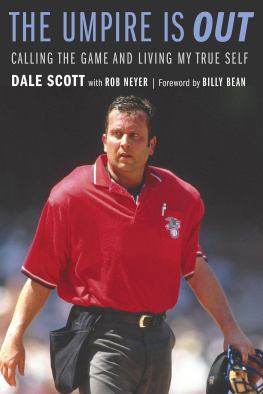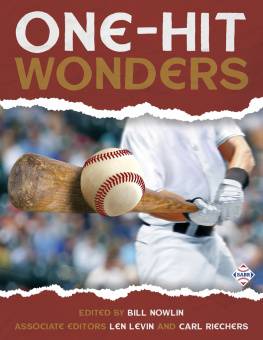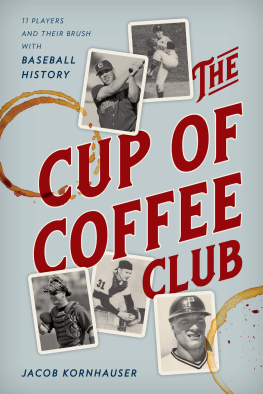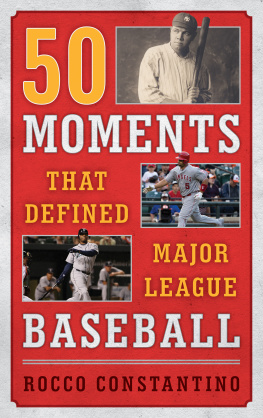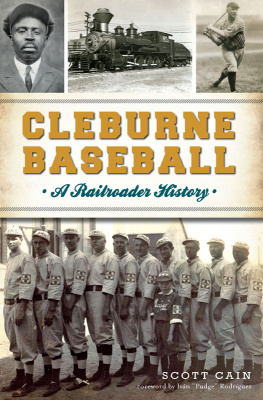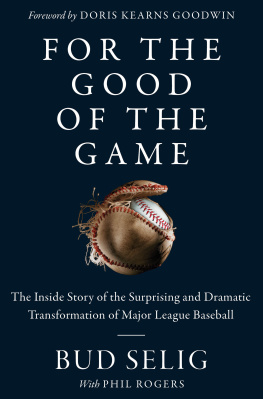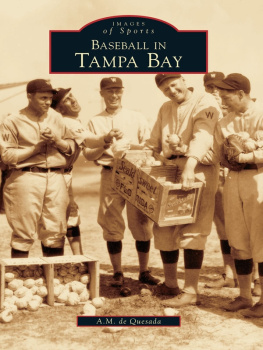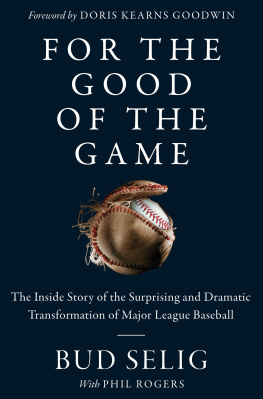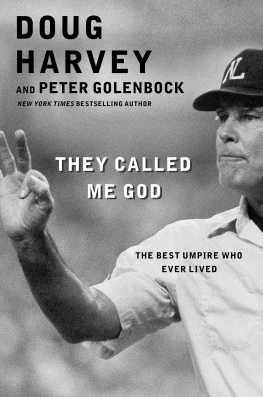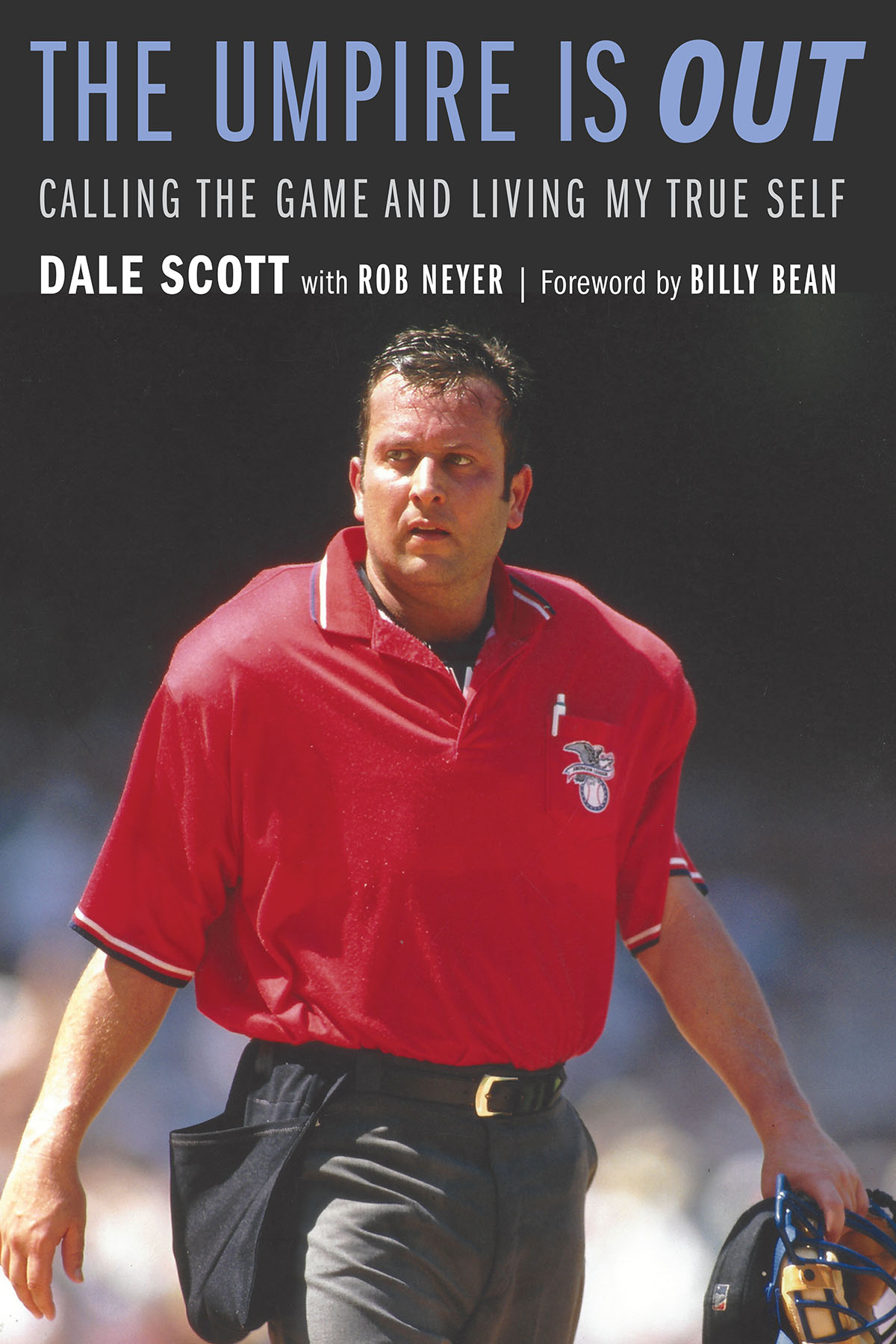
Dale Scott was both consistent and approachable, perhaps the two most important qualities for an umpire. Dales personal story is inspirational, but his book also features vivid game stories from a truly great run at the top of his profession.
David Cone
Dales personal story differs dramatically from those of his umpiring colleagues. And yet, what also shines through is what he and so many of us have in common: an abiding love of baseball and an appreciation for what the game has meant to our lives. This is a textured story, both entertaining and meaningful. And told with uncommon grace.
Bob Costas
As the late, great Ernie Harwell once said to me about Dale, A great umpire is like a great driver in traffic: you never notice theyre there. That was Dale Scott. He had a great, consistent strike zone, and I dont recall him ever missing a call on the bases. But as good an umpire as Dale was, hes also one of my all-time favorite people.
Harold Reynolds
Dale Scott umpired for more than thirty years in the big leagues. Hes seen it all, and most of the best parts seem to have wound up in these pages. But heck, Id buy the book just for the chapter on the Jos Bautista Bat Flip Game!
Dan Shulman
For more than ten years, Dale Scott made me laugh every day. As a mentor, he taught me how to not only survive but excel in the Major Leagues, and I am forever grateful for his friendship and leadership. This memoir delivers the humor, excitement, and knowledge that only a true insider can provide. Make the right call and read this book!
Dan Iassogna
The Umpire Is Out
Calling the Game and Living My True Self
Dale Scott with Rob Neyer
Foreword by Billy Bean
University of Nebraska Press | Lincoln
2022 by Dale Scott and Rob Neyer
Foreword 2022 by the Board of Regents of the University of Nebraska
Cover designed by University of Nebraska Press; cover image is from the interior.
Data in the appendix is copyrighted by Retrosheet. Interested parties may contact Retrosheet at www.retrosheet.org.
All rights reserved
The University of Nebraska Press is part of a land-grant institution with campuses and programs on the past, present, and future homelands of the Pawnee, Ponca, Otoe-Missouria, Omaha, Dakota, Lakota, Kaw, Cheyenne, and Arapaho Peoples, as well as those of the relocated Ho-Chunk, Sac and Fox, and Iowa Peoples.
Library of Congress Control Number: 2021039681
The publisher does not have any control over and does not assume any responsibility for author or third-party websites or their content.
Contents
Billy Bean
On April 24, 1995, I was driving home from Jack Murphy Stadium after a night game. I was playing for the San Diego Padres, and we were near the end of a very bizarre spring training. The well-documented lockout of 1994, which saw the cancelation of the World Series the previous October, was catastrophic for players like me. Baseball was trying desperately to erase one of the darkest moments in its history. Because of the work stoppage, we started spring training later than usual, and it was shortened with the aim of getting players back on the field as quickly as possible.
Like every spring, my mind was focused on making the ball club, but when I arrived home, I could immediately tell that something was wrong. The front door was open, and I could not find my partner, Sam. As a Major League player deeply submerged in the closet, an open front door was never okay. I found Sam upstairs in our bedroom, unconscious on the floor.
Because of his recent HIV -positive diagnosis, I fully understood the severity of the situation. I rushed Sam to the hospital as fast as I could and held on to his hands all night long; he died at around seven that next morning. As I left the hospital, in complete shock, it dawned on me that I had to be in Anaheim, to play against the Los Angeles Angels, in less than three hours. I walked through the parking lot with Sams clothes in a clear plastic bag that the hospital had given to me. As I sat in my car, the sad, lonely isolation of the closet tore through me. I was afraid to cry, because I knew I might not be able to stop. None of my teammates had ever met Sam or knew he existed. It was a secret life, one I devoted way too much attention to keeping that way. Its all I ever thought about. Now I began to realize he was gone forever, as if he had never existed.
I played in the Major Leagues from 1987 through 1995. For the first few years of my career, I didnt once think there might be another gay player or umpire. Then in 1990 I heard a couple of players make comments about a recently fired umpire named Dave Pallone, who came out, and I would come to learn about Glenn Burke and his heartbreaking story toward the end of my career. Glenn and I remain the only two Major League players in the 152-year history of MLB to publicly disclose our sexual orientation as gay. The awful stereotypes I learned growing up made it seem to me that no Major League player or umpire could possibly be gay. When I began to realize my own sexual orientation, so began the never-ending internal voice telling myself I didnt deserve to play in the Majors. By the end of that 1995 season, grieving the loss of Sam, still hiding my secret from my family, friends, and teammates, I walked away from baseball and the life I had dreamed of living since I was a little kid.
My story didnt surface publicly until over four years after my last game. I was completely unprepared for the attention that it brought. At that time, aside from a few former players in the NFL , there had been no representative of male athletes in the four major team sports to ever publicly come out as gay. In December 1999 it was much easier to hide and keep to yourself than it is now. However, I still received more letters, messages, and calls than I could count. My life changed overnight, solely because I had played baseball in the Major Leagues.
During my career, Dale Scott and I exchanged pleasantries on the field during games, but I cant remember anything beyond that. Players and umpires in my era did not engage the way they do now. Dale saw my story on TV and learned that I was living in Miami Beach. About a year later, I received a message from him, for which I am forever grateful. On the phone, he shared the dates his crew would be coming to Miami for a homestand with the Marlins, and we committed to lunch prior to one of his games. We met at a restaurant close to the stadium, and when I sat down in the booth, my heart was pounding. Thoughts of Sam rushed through my mind, and before we even started talking, I felt like I was looking at a long-lost brother. All I could think was: Why couldnt we have had this moment before I walked away from the game?
Anyone who has ever met Dale will tell you that he may be the most easygoing, self-effacing, generous, funniest, and nicest guy theyve ever met. On the field, he could give it to you good or give it right back with the best of them, but away from the field, he simply makes everyone feel better when they are in his company. We became brothers during that lunch, and weve remained family ever since. I held on to his and Michaels secret until 2014, when he came out publicly.
Dales thirty-year MLB career makes him a Hall of Famer in every sense of the term. Ive often told him that he will never know how many lives he has impacted by representing the LGBTQ community and MLB in such a profound way. Lucky for us, his work is just beginning, and this book will allow many new fans to get to know him and learn why his story is so important. Dale and I are forever linked, and I would walk to the moon and back for him. I cant wait to see where life takes him next, but his MLB legacy will last forever. And Im so grateful to call him my friend. Settle in... because Dales story is literally one of a kind.
Next page
